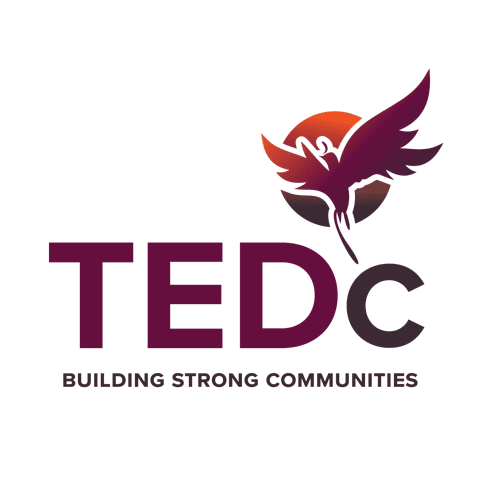History
Our Story
Creating affordable housing in communities where the need is in most demand.
Origin
Tacolcy Economic Development Corporation (TEDC) is a Florida-based 501(C)(3), non-profit, Community Development Corporation (CDC), formed to serve the Liberty City target area of Miami-Dade County. TACOLCY is an acronym for Teen Advisory Committee of Liberty City Youth. TEDC was incorporated in 1982 as an independent and autonomous spin-off agency of Belafonte Tacolcy Center (BTC), a non-profit social services agency that has served the Liberty City community since 1967.
Ordeal
Liberty City grew rapidly in the 1950s and 1960s. Its growth was largely due to the in-migration of African-Americans displaced by an urban renewal and a highway project south of it. However, after the beating death of a black motorist by the police in the 1980s, a consequential disturbance erupted. The community revolted and the resulting riots caused $10 million in physical and financial devastation. Businesses left in droves and over 3,000 jobs were lost, wreaking economic havoc.
- Total property damage of $100,000,000; $11,000,000 in Liberty City
- The Military Reestablishes Calm in the District
- 18 People were Killed
Oportunity
TEDC was conceived in the wake of the riots. It was tasked with restoring the physical environment and infrastructure required to stimulate private reinvestment, both in the 7th Avenue Commercial Business Corridor and Edison Center Business District. Its focus was to develop and implement an economic agenda for the Liberty City area that would draw business and job opportunities back to this once burgeoning community. The out-migration of the upwardly mobile had to be stabilized, and better housing opportunities created for its low and moderate income residents.
Obstacles
Prior to the 1980 upset, demographics in Liberty City already reflected a struggling society:
- 17% decrease in population over 10 years
- 44.7% overcrowding within 7 square miles
- Merely 11,999 households with an average size of 2.94 persons
- Median population age of 26
- Of 12,792 units, 3% were < 5 years and 67% were 20 to > 40 years old
- Median property value of owner occupied units was $30,998 with 70% valued < $40K
- 36% of households had an estimated annual income of < or = $7,500. 38% between $7,500 and $15K; and 29% from $15K to $35K
Objectives
Many issues were voiced by the community in the aftermath of the riots, in a public forum at the Belafonte Tacolcy Center in Liberty City. Frustrations largely centered on poor living conditions and paucity of goods and services.
An economic ‘wish list’ of Community Priorities resulted —
- Job Opportunities
- Job Training
- Business Loans
- Housing Availability
- Police Review Board
- Improved Government Services
- Entrepreneurial Training
Operation – Residential
TEDC recognized that in order for the community to sustain itself by attracting more private investment into the area, it had to address the seriously overcrowded and dilapidated housing conditions that existed in Liberty City.
Residential Development Program
The Residential Development Program sought to stem out migration and relieve the cramped conditions. Market studies showed the area could support additional housing and land was identified for this use. In 1987, TEDC acquired a site (formerly Shell City) on NW 58th Street and 7th Avenue and in 1988 completed construction of Edison Towers. Through the cooperation of private and public entities, TEDC raised $5.5 million to develop the 121 unit Edison Towers–the first affordable rental community built in Liberty City in over 20 years. TEDC was the first non-profit developer in Florida to obtain financing through the newly created Low Income Housing Tax Credit Program. Edison Gardens and Edison Terraces later provided an additional 220 units. In 1990, TEDC formed the Tacolcy Property Management Corporation (TPMC), to manage its real estate portfolio, and by 2004, TEDC was the largest developer of quality affordable rental housing in Liberty City.
Operation – Commercial
To nurture commercial development in the area, a strategic three-pronged work program was formulated.
- Economic Planning and Advocacy
- Commercial Revitalisation
- Venture Development and Management
Economic Planning & Advocacy
No reliable secondary economic data existed for Liberty City. TEDC therefore had to collect primary data on the area before a strategic revitalization “Town Center Plan” could be devised. This focused on:
- Transportation Improvements
- The Industrial Corridor
- Residential Community
- Business/Commercial
- Recreation/Entertainment
Constraints
- The Riots of 1980
- Overcrowding
- Crime
- Image
- Blight
- Inadequate Parking
- Poor Traffic
- Inadequate Goods and Services
Assets
- Location
- Cheap Land
- Existing Infrastructure
- Cheap Labor
- Underserved Market
The Commercial Revitalization Component
The foci of this component were retention, expansion and attraction of businesses in the district, through the following:
- Physical Improvement (Facades) Program
- Streetscape Program
- Marketing & Promotion Program
These combined elements served to create a commerce friendly micro-economy and raise investor confidence while improving overall quality of living in the area.
The Venture Development & Management Program
With a start-up grant from the Local Initiatives Support Corporation (LISC), a non-profit community development venture capital foundation created by the Ford Foundation, TEDC began the formidable task of redeveloping a riot-ridden shopping center, abandoned by its former tenants. The newly rebuilt 46,000 sq. ft. Edison Plaza Shopping Center opened its doors in Spring of 1985, and was the first commercial retail center to attract a major national tenant, following the newsworthy events.
Organizational Mission
TEDC was once focused squarely on the redevelopment of Liberty City; but marked success over two decades has, and continues to facilitate a widened scope of impact.
TEDC’s organizational mission therefore is “To foster within target communities an economic environment where investment is a self-fueling process. This results in increased availability and improved quality of housing, goods and services; and creates job and entrepreneurial opportunities that drive sustainable societies. Special emphasis is placed on creating affordable housing where the need is highest.”
